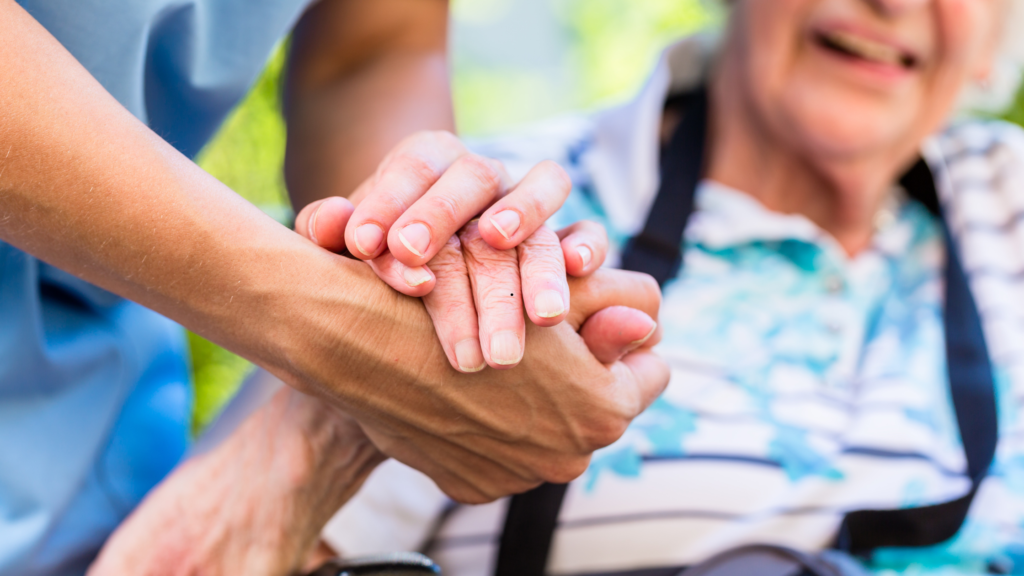
How to Cope with the Emotional Side of Caregiving with Parkinson’s Disease
Since Parkinson’s disease is a condition that has no cure, it’s hard to witness loved ones suffer from its progression and how it alters their life. There’s that growing grief that you can’t take away from your loved one which can significantly impact the emotional side of caregiving with Parkinson’s disease.
While caregiving for a Parkinson’s patient requires immense strength, understanding, and love, it’s important to remember that you’re only human. Humans have limits too and as you read this post, equip you with the right tools to make caregiving more sustainable and manageable for you and your loved one.
How parkinson’s patients mental health affects their caregivers
The physical and neurological symptoms that Parkinson’s patients experience makes the disease more complex and overwhelming for caregiving. Every patient case is different so we cannot discount the difficulty of navigating your own situation. With that, you and your patient may share the same symptoms of mental toll such as:
- Depression
- Anxiety
- Apathy
Such conditions are the trifecta that can lead to feelings of helplessness or frustration for both you and your patient. It’s hard to see your loved one struggle, especially when their behavior changes from what you’ve always known.
The emotional toll comes from more than just witnessing their pain—it’s also about adjusting to a new reality where they might not be able to do the things they used to love. You might find yourself grieving small losses along the way, like the change in their mobility, independence, or even their once-vibrant personality.
Seeing your loved one’s grief is a grieving experience for you as a caregiver as well. This can make you feel like you’re losing parts of them slowly, which adds another layer of mental distress to your caregiving journey.
How to Cope with the Emotional Side of Caregiving with Parkinson’s Disease
As a caregiver, you deserve just as much compassion and care as you give to your loved one. Here are some strategies to help you navigate the emotional side of caregiving with Parkinson’s disease:
#1 Fill Your Own Cup

It’s easy to put yourself last when someone you love needs constant support, but it’s equally crucial to make time for yourself. Small acts of self-care, like enjoying a quiet cup of coffee in the morning or taking a walk outside, can make a huge difference.
Remember, rest is not a reward but a necessity for a caregiver like you. When you recharge your own emotional and physical energy, you’ll be in a much better place to provide the care to your loved ones.
Guilt often makes caregivers feel like they must sacrifice everything for their loved ones. But with Parkinson’s at hand, that philosophy is detrimental to you and your patient. Taking care of yourself, allowing other people to take care of you, or hiring someone to take over your caregiving duties on some days is the only way to sustain your caregiving journey.
#2 Learn More About Parkinson’s Disease

Understanding Parkinson’s beyond the surface level can make a huge difference in how you approach caregiving. It is a disease that manifests differently from one patient to another so equipping yourself with enough knowledge, you’ll be able to track your patient’s condition better. .
Learning about the disease’s progression, symptoms, and challenges can prepare you for what’s ahead. It can help you reduce fear and anxiety about the unknown and better understand and empathize with your loved one’s experience.
Explore resources, read books, or join webinars focused on Parkinson’s care. Some of the best resources can be found from these Parkinson’s-focused platform:
- Parkinson’s Foundation
- American Parkinson’s Disease Foundation
- Podcast: Substantial Matters
- FB Groups: Life with Parkinson’s
#3 Consult a Therapist on How to Respond Properly to Your Loved One

Caring for someone with Parkinson’s can bring up complex emotions, including frustration, sadness, and even anger. These feelings make you human and should not make you less of a caregiver.
The emotional outbursts of patients can trigger caregivers to react in a way that leaves the patient feeling worse. Consulting a therapist, especially one familiar with caregiving challenges, can provide you with coping strategies and communication techniques.
A therapist can also help you process the emotional weight of watching your loved one change over time. This support can be a crucial part of maintaining your mental well-being and ensuring that you can continue to provide care with patience and love.
#4 Allow Your Loved One to Participate In Their Own Healing

One of the hardest parts of having a disease such as Parkinson’s is the part where patients gradually need to accept the things they can no longer do. On the flip side, there are still so many things that they can still do by reinforcing their brain and body connection through exercise.
Most patients can still work and do a lot of things. With that, it’s important to support them in such a way that you remove their autonomy from them. Otherwise, you risk making them feel worse or breed feelings of uselessness.
As much as you want to help, allow your loved ones to tell you which areas you can make them feel more supported. Example of this dynamic are as follows:
- Empowering them to make decisions about their daily routine, diet, or activities can boost their mood and give them a sense of control. This participation can also lighten your emotional load, knowing that you’re not carrying the full weight of responsibility alone.
- Involve them in planning meals or encourage them to engage in gentle exercise that they enjoy. Even if their abilities are limited, giving them the chance to voice their preferences can foster a sense of partnership in the caregiving process.
- Give them the power to choose their style like outfits or preferred locations to visit or unwind. Such things give them a sense of normalcy in the midst of their condition.
#5 Be Around Supportive Community or Friends

It’s hard to feel understood when everyone around you, even family, has no idea what really happens every day with a Parkinson’s patient. Finding a support system—whether it’s a local support group, an online community, or friends who are willing to listen—can make all the difference.
Being able to share your struggles and victories with others who understand, have compassion and empathy, can reduce feelings of loneliness and give you new ideas for managing challenges.
Support groups are very instrumental in providing a safe space to vent your frustrations and hear how others have navigated similar experiences. It’s comforting to know that you don’t have to face this journey alone.
Get the Much Needed Break with Essential Wellness
Your patients will feel less of a burden if they feel like you are also taking some time for yourself. Though it’s hard to let go of your responsibilities as a caregiver, it’s crucial to put down the heavy load and let someone take over the job until you’re strong enough to wear them back again.
Essential Wellness is a home health care agency in South Florida that aims to provide convenient healthcare support for caregiver families with Parkinson’s disease or chronic illness patients, aging loved ones, patients in recovery from injury, children with disabilities and patients with mental health conditions. Other services provided include:
- Personal Support (Daily living support)
- Life Skills (Companionship)
- Respite Care / Skilled Respite
- Analysis and Behavior Assistant services (ABA)
- Nursing
- Private Duty Nurse
- Skilled Nurse
- Residential Nurse
- Therapy
- Speech Therapy
- Occupational Therapy
- Physical Therapy
- Homemaker & Companion
- Specialized Mental Health
Book a free consultation today to know your care options. Being a caregiver is one of the toughest jobs out there and taking care of yourself helps prevent your situation from getting worse. Coping with Parkinson’s may be hard but there’s hope and strength in it that no one will truly understand except the ones who thrived in spite of it.

